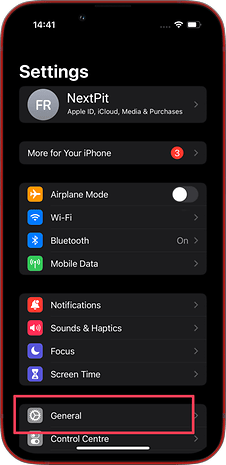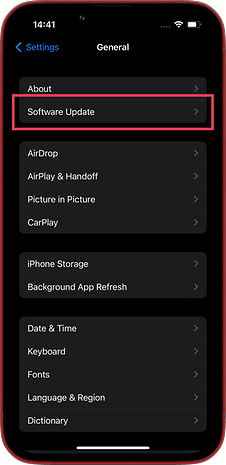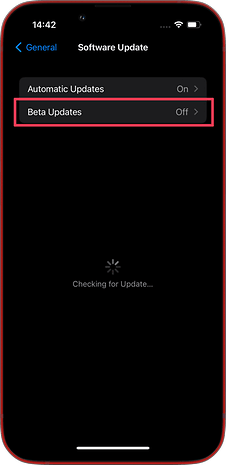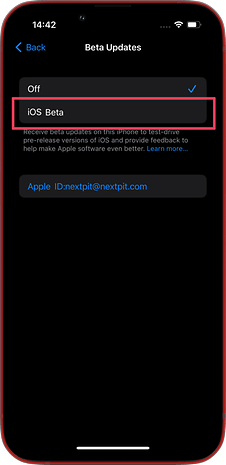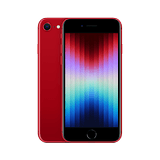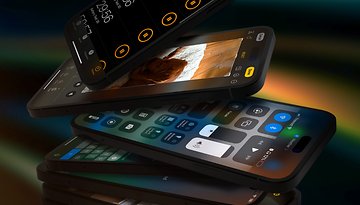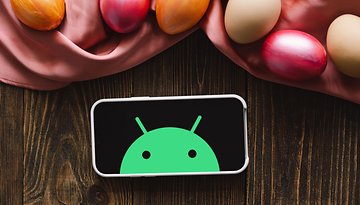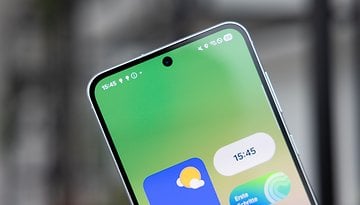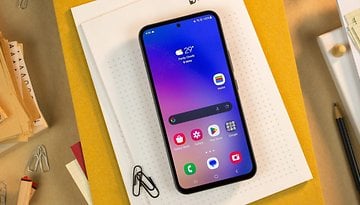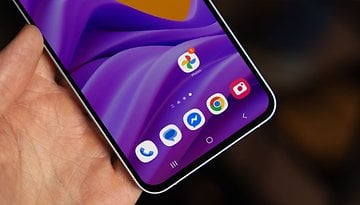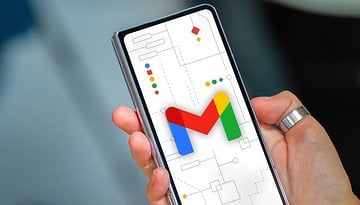How to Install iOS 18 Public Beta for Free on Any iPhone
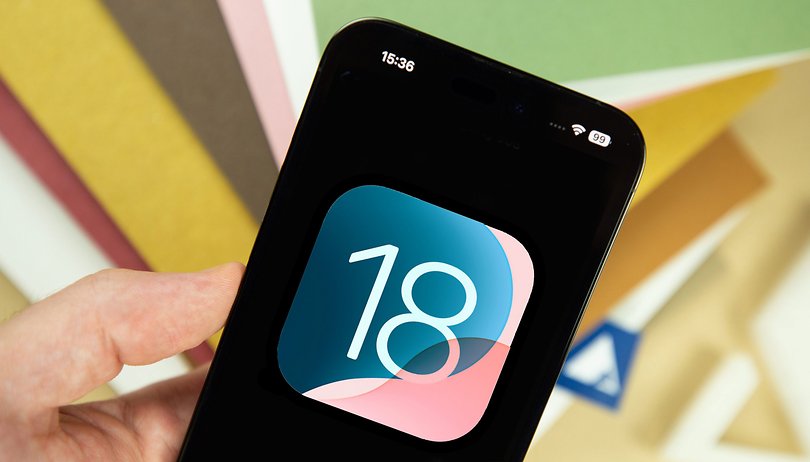

Read in other languages:
Apple has announced iOS 18 at WWDC 2024 along with the first developer beta update. Following revamped guidelines last year, installing the software has not changed. If you're interested in trying some new features before the public release, here's a quick guide on how to download and install iOS 18 on your iPhone and iPad (iPadOS 18).
iOS 18 status and release date
The same as the iOS 17 schedule last year, the announcement of iOS 18 during WWDC was immediately followed by the release of the first developer beta for developers and testers. The next major milestone was the public beta, which rolled out July 15th, while the stable and final release will likely coincide with the release of the iPhone 16 in the fall.
Meanwhile, iterative smaller beta updates may be shipped along the way going to the public and definitive version.
- iOS 18 developer beta: June 10, 2024, start of availability.
- iOS 18 public beta: July 15, 2024.
- iOS 18 stable release: “September to October” 2024 launch window.
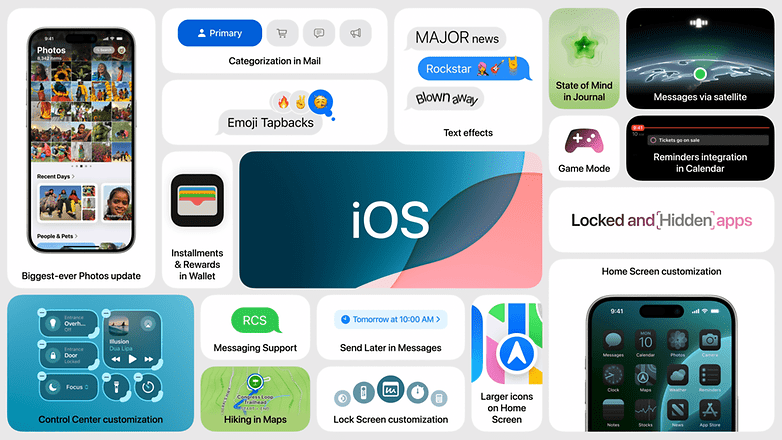
Here's how to find out if your iPhone is compatible with the iOS 18 update and which features are available from the first developer beta.
How to download and install iOS betas on your iPhone
Important: Keep in mind that the beta status means many unbaked features and bugs could be found in the software that can break compatibility with apps and your device's system. Hence, it is suggested to have your iPhone backup before updating and follow the instructions below at your own risk.
How to activate iOS 18 public beta on your iPhone
Public beta releases are usually less buggy but still are not recommended for use on your main device. For iOS 18, the first public beta was released in July, giving a preview of what is coming on the stable release.
When the system reaches the public beta stage, most groundwork for developers is done when it comes to APIs (how apps interact with the system), but there is still time for user-facing changes to the interface and new features.
If you have a spare device to test the future system, just follow the steps below.
- Go to beta.apple.com on your iPhone and log in with the main Apple ID of the phone.
- You will have to Agree to the Apple Beta Software Program rules.
- Select the iOS tab on the "Enroll Your Devices" page and follow the instructions.
After that, the Software Update menu should list a “Public Beta” option for the selected operating system on your iPhone:
- Open the Settings app.
- Choose General.
- Go to Software Update.
- Select Beta Updates.
- Choose iOS 18 Public Beta.
- Go back to the previous screen and tap Update Now or Update Tonight.
The iPhone will restart running the new operating system version.
How to activate iOS developer beta releases on your iPhone
The iOS 18 developer beta is available to anyone with a compatible iPhone. It's a free service for developers to test their apps and services, but regular users with a valid Apple ID can also try it out by enrolling in the Apple Developer Program (ADP).
Developer betas are not only used before a major iOS update like the 18 version but also for minor updates later in the release cycle. With some "Apple Intelligence" features coming out with the later "point" releases, iPhones on the developer beta program should be the first to get them.
Despite the change, iOS developer betas are not listed by default on iPhones—or on an iPad, Apple Watch, Mac, or Apple TV. First, it is necessary to follow these steps:
- Log in to the Apple Developer website with your Apple ID account.
- Choose Enroll today.
- Opt to continue on the Apple Developer app or select Continue enrollment on the web.
- Confirm your personal information and select Continue.
- Follow the remaining instructions and agree to the terms and conditions (T&C).
- Close the app or browser.
Follow the next steps on your iPhone to opt for the Developer Beta
- On your iPhone, select General.
- Choose Software Update.
- Tap on Beta Updates.
- Select iOS 18 Developer Beta.
- Press Back and refresh to see if iOS 18 is available to download.
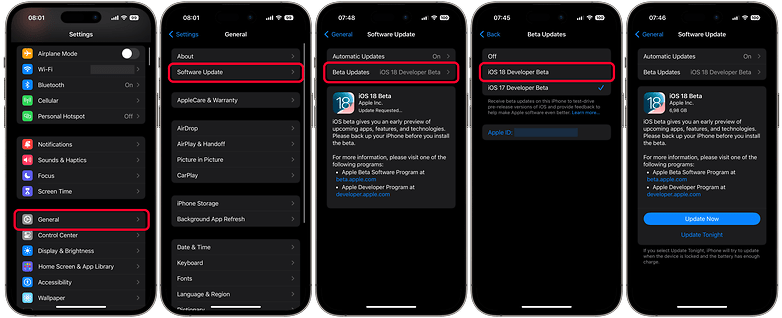
Depending on the device, you will see more than one Beta available. Select the one you want to test and then wait for the update to be downloaded and installed, during which the device will be restarted.
When can you download the final iOS 18
The general iOS 18 version is expected to hit supported iPhone models by fall or around the same time as the iPhone 16 series release, which usually happens in September. And like with other major iOS releases, it will be distributed OTA (over the air).
Here's how to check on your iPhone once the update is released:
- Open the Settings app.
- Select General.
- Open Software Update and wait for the system to check for available updates.
- If there is an update, tap Download and Install.
- After downloading the latest version, select Install Now.
- After rebooting, your iPhone will be running the latest version.
Remember! The update will only be installed once the device is rebooted. For this, the iPhone must have at least 50% remaining battery life or be connected to a charger.
How new iOS versions are developed
Apart from having a more controlled ecosystem, Apple follows a slightly different development process than Google does with Android. Although both systems receive major annual updates, iOS often features major changes in between version updates.
In the case of iOS (including iPadOS and other derived systems), Apple offers beta versions for minor revisions—such as 17.1, 17.2, etc.—and these are normally available for a few weeks before the final stable version is released. Google does things differently by conducting a single testing process over several months, before the annual Android version update which normally happens in the second half of the calendar year.
Have you tried installing iOS beta software before? Do you prefer the old beta profile file system or the new menu on the Settings app? Share your opinion in the comments below.
Article rewritten in July 2024 with instructions for the iOS 18 public beta installation.
Source: Apple Developer
